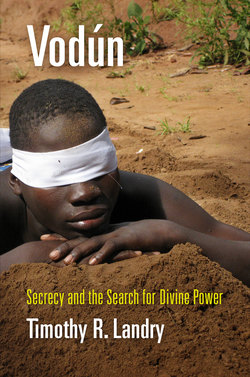Vodun

Реклама. ООО «ЛитРес», ИНН: 7719571260.
Оглавление
Timothy R. Landry. Vodun
Отрывок из книги
CONTEMPORARY ETHNOGRAPHY
Kirin Narayan and Alma Gottlieb, Series Editors
.....
In seeking to provide an ethnographic account of Vodún that attends critically to foreign involvement in the religion, I struggled to find a word to describe those diverse individuals who were traveling to West Africa to become initiated. On the one hand, “tourist” seemed too insubstantial. To many of the foreigners with whom I spoke, “tourist” did not quite capture their sincerity or, in their words, the “sacredness” of their trip. As one American man expressed, “I am here to become a priest. Not to visit a tourist trap.”
On the other hand, “pilgrim” seemed to imply that foreign spiritual seekers were traveling to Bénin to confirm established religious beliefs or to find physical relief from hardships, pain, or worries (Turner and Turner 1978). But for many foreign initiates, their trip to Bénin marked their first steps into Vodún. They were looking for what Alan Morinis called a “place or a state that [they] believe to embody a valued ideal” (1992: 4). Their initiation experiences are cultivated in their imaginations long before they arrive in Bénin. By reading voraciously, interacting with other future and past initiates on Facebook, and searching YouTube for any videos that might reveal a small glimpse of the rituals they seek to undergo, spiritual seekers achieve a sort of revelation and a longing for West Africa and the secrets that are protected by the forest. In this sense, they are pilgrims. But they are also true neophytes. They arrive speaking little to no Fɔngbè or French and they have a clumsy understanding of basic cultural rules and social norms. Unlike what one might expect from pilgrims, they do not come to Bénin in search of solutions or remedies or even to confirm their trust in the spirits. Instead they come hoping to find new ways of relating to the divine.
.....